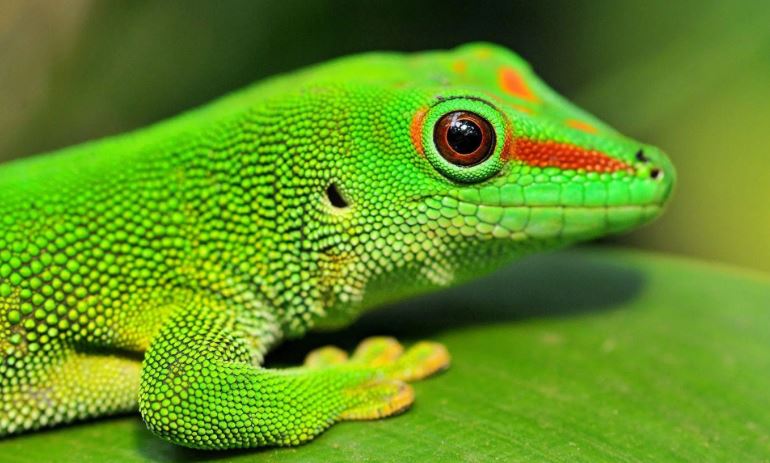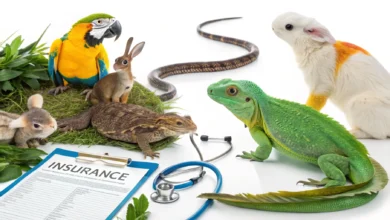Importance of Insuring Exotic Pets: Reptiles and Their Unique Needs
Should you insure your reptile?

As with other pets, taking out health insurance for a reptile is not mandatory. On the other hand, you should check that your civil liability insurance covers any damage caused by your reptile. If this is not the case, you should declare your animal to your insurer so that they can modify your contract.
Concerning mutual insurance for reptiles, it is possible to take out insurance for NAC (new pets) or directly insurance specialized in reptiles or snakes. In the latter case, you will have the assurance of benefiting from services truly adapted to your animal. Indeed, mutual insurance companies for NAC offer guarantees broad enough to cover the needs of many NACs. However, the latter are very varied: birds, rodents, reptiles, etc.
What Are the Guarantees of Health Insurance for Reptiles?

Reptile health insurance will cover veterinary costs generally charged for this type of pet. Therefore, it is recommended for snakes to have an annual check-up visit to the veterinarian.
On this occasion, this animal health professional will check the weight, scales, etc. He will provide advice on the temperature of the terrarium as well as its humidity level and will be able to guide the animal owner in terms of feeding the snake.
Veterinary consultations are therefore covered by health insurance for NAC and/or reptiles. It should be verified that anti-parasitic treatments are also included in the care covered. The latter can, in fact, be prescribed in certain cases.
Depending on the level of guarantees taken out, the hospitalization of a reptile can also be covered by health insurance. In fact, the latter may need to be kept under veterinary supervision or even operated on following an accident or illness.
Before going to a veterinarian, find out about their specialties. Not everyone takes reptiles for consultation.
Additional Coverage Options and Considerations

When considering health insurance for your reptile, it’s important to look beyond basic veterinary care. Some insurance plans offer additional coverage options that can be crucial for the wellbeing of your exotic pet.
- Preventive Care: Regular health check-ups, vaccinations, and preventive treatments can be covered under comprehensive plans. Preventive care is essential to catch potential health issues early and maintain your reptile’s overall health.
- Emergency Care: Accidents can happen at any time, and having coverage for emergency care can provide peace of mind. This includes coverage for urgent surgeries, emergency room visits, and specialized treatments.
- Behavioral Treatments: Some insurance policies may cover behavioral consultations and treatments. Reptiles, like all pets, can exhibit stress or behavioral issues that require professional intervention.
- Herbal and Alternative Treatments: In some cases, alternative treatments such as herbal remedies, acupuncture, or other non-traditional therapies might be covered. These treatments can be beneficial, especially for chronic conditions or as supplementary care.
Understanding the Costs and Benefits
The cost of insuring a reptile can vary based on factors such as the species, age, and health condition of the pet. While the premiums might seem high, the benefits often outweigh the costs, especially in case of unexpected health issues or emergencies. Here’s what to consider:
- Species-Specific Needs: Different reptiles have different health needs. Ensure the insurance policy is tailored to cover the specific requirements of your pet’s species.
- Age and Pre-existing Conditions: Younger reptiles are generally cheaper to insure, and policies might not cover pre-existing conditions. It’s best to insure your pet early.
- Comprehensive Coverage: Look for policies that offer comprehensive coverage, including preventive care, emergency services, and specialized treatments.
Choosing the Right Insurance Plan

Selecting the right insurance plan for your reptile involves thorough research and comparison of available options. Here are some steps to help you choose:
- Research and Compare: Investigate various insurance providers and compare their plans. Look at what each plan covers and the exclusions.
- Read Reviews: Customer reviews and testimonials can provide insights into the reliability and quality of the insurance provider’s services.
- Consult Your Veterinarian: Your veterinarian can offer valuable advice on what kind of coverage your reptile might need and recommend reputable insurance companies.
- Understand the Fine Print: Carefully read the terms and conditions of the policy. Pay attention to exclusions, waiting periods, and claim processes.
Conclusion: Securing Your Reptile’s Health
Ensuring your reptile is covered by an appropriate health insurance plan is a wise decision that can save you from unexpected veterinary expenses and provide the best care for your exotic pet.
From regular check-ups to emergency treatments, a good insurance policy can make a significant difference in managing your reptile’s health and wellbeing. Always consult with insurance experts and veterinarians to choose the best plan tailored to your pet’s unique needs.
FAQ About Civil Liability Pet Insurance

- What is civil liability pet insurance?
Civil liability pet insurance covers the financial responsibility of pet owners for any damage or injury their pet may cause to others, including property damage, bodily injury, and sometimes even legal fees. - Is civil liability pet insurance mandatory?
In many places, civil liability insurance for pets is not mandatory, but it is highly recommended. Some countries or regions may require it for specific pets, particularly those considered dangerous. - What types of pets are typically covered by civil liability insurance?
Most civil liability pet insurance policies cover common pets like dogs and cats. Some policies may also extend coverage to other animals, such as horses, birds, and exotic pets, but it’s essential to check with the insurer. - What damages does civil liability pet insurance cover?
Civil liability pet insurance typically covers damages caused by your pet to third parties. This includes bodily injury (such as bites or scratches), property damage (like chewing furniture), and sometimes legal fees if you are sued due to your pet’s actions. - Are there any exclusions in civil liability pet insurance?
Yes, common exclusions include intentional damage caused by the pet owner, damage to the pet owner’s property, and incidents that occur when the pet is not under proper control or supervision. - Does civil liability pet insurance cover injuries to my own pet?
No, civil liability pet insurance does not cover injuries to your own pet. It only covers damages your pet causes to others. For your pet’s injuries or illnesses, you would need a separate pet health insurance policy. - How is the premium for civil liability pet insurance determined?
Premiums are based on factors such as the type and breed of the pet, the pet’s age, the owner’s history of claims, and the coverage amount. Certain breeds considered high-risk may attract higher premiums. - Can civil liability pet insurance be added to my homeowner’s insurance?
Yes, many homeowner’s insurance policies offer the option to add civil liability coverage for pets. However, coverage specifics can vary, so it’s important to review the terms with your insurance provider. - What should I do if my pet causes damage or injury?
If your pet causes damage or injury, contact your insurance provider as soon as possible to report the incident. Gather evidence, such as photos and witness statements, and follow the insurer’s instructions for filing a claim. - How can I reduce the risk of incidents that may lead to a liability claim?
To reduce risk, ensure your pet is well-trained and socialized, keep them under control in public areas, secure your property to prevent escapes, and supervise interactions with people and other animals. Regular veterinary check-ups can also help identify and manage any behavioral issues.
Disclaimer: Always consult with your insurance provider to understand the specific terms and conditions of your civil liability pet insurance policy. Coverage details can vary significantly between different insurers and policies.



